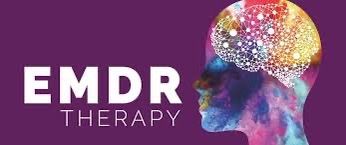
Dietitian Assessment & Counselling as Recommended Addition to Therapy Sessions
Dietitians, Therapists, and Eating Disorder Recovery go Together!

Many folks who seek therapy for disordered eating and body image concerns may not be aware that adding registered dietitian support alongside therapy, is shown to increase efficacy of treatment and improve prognosis.
While therapy helps clients to understand the mechanism of the disordered eating: how it may be functional to regulating emotional states, as well as distracting from lack of control over other environmental problems; nutritional assessment helps to address specific areas of nutritional deficiencies, as well as meal planning & ideas for reintegrating feared foods.
Eating disorder therapists generally recommend dietitian consults and medical assessments, including updated labwork and snapshot of heart function, also known as ECG. These help your treatment team determine how your body has been affected by the disordered eating/ malnutrition.
Some of the specific ways registered dietitians can help manage disordered eating, and healthy/ intuitive eating:
• The first area of focus in nutrition recovery is learning how much your body needs and establishing regular eating patterns (i.e. regular meals and snacks) to nourish our brain and body. A nourished brain allows us to better engage in psychological treatment of the ED. This can be done through use of a structured eating plan, meal support, and for some individuals may involve weight restoration and/or stabilization.
• Dietitians can help to evaluate Nutritional deficiencies/Electrolyte abnormalities: to reduce immediate risks and health consequences
• Assess the the efficiency of Hunger/fullness cues: often when folks are engaging in disordered eating, these cues are unreliable or lacking altogether if we have been constantly overriding them. By eating enough and often enough our hunger/fullness cues do return and we can begin to turn in to them and later, you may wish to work on not only recognizing these cues, but eating in response to them.
And finally,
• Working toward having a neutral mindset towards food: begin to detach our moral value based on the types of foods we eat. The more we detach from “good vs bad” mentalities towards food, the more healthy we can be in our relationship with food.
We have an amazing dietitian at our clinic who specializes in all of the above areas. Please reach out to Ally Choo, RD, on our website, to book an initial appointment!
Emergencies: If you are suicidal or having a mental health crisis, please all the crisis line at 9-8-8 or
604-872-3311 or https://crisiscentrechat.ca
If you cannot keep yourself safe, call 9-1-1 or go to your nearest emergency room department.
Address: 206 - 1651 Commercial Drive, Vancouver V5L 3Y3
Mail: Contact form / carmanahcounselling@gmail.com
Phone: 604-426-1185
Carmanah Counselling and Integrated Health
Co-located with:
www.publicalley.org
www.hollifield.ca
www.ashleyshankarcounselling.com
www.cristinadann.com



